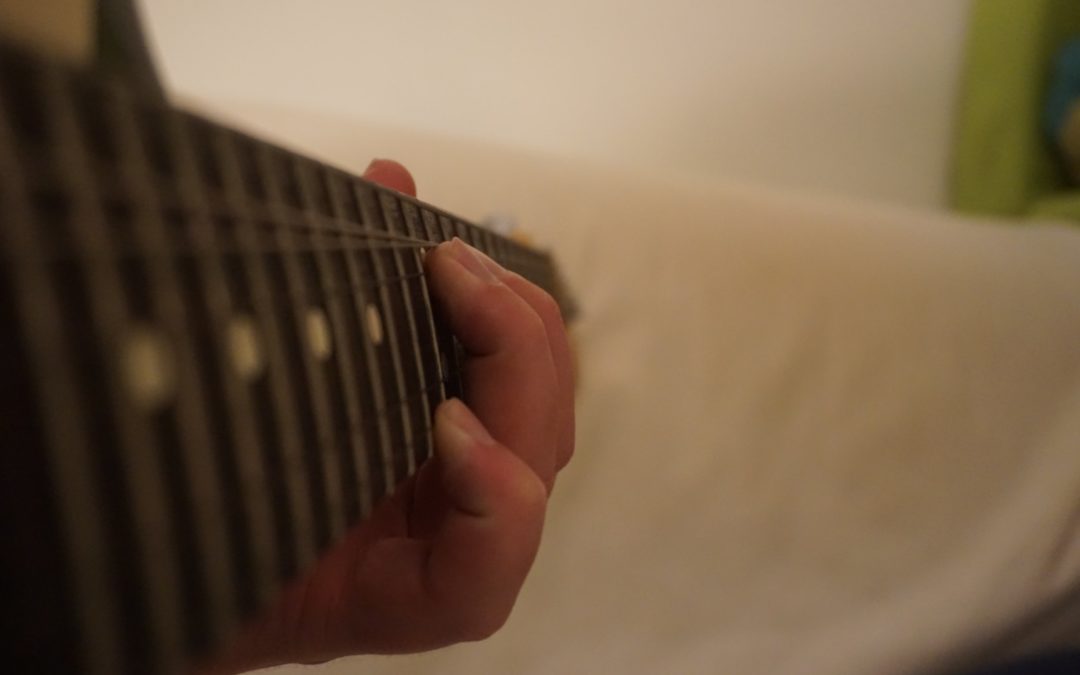Hello there! Today’s blog is primarily aimed at those in the intermediate to advanced category but useful for anyone wanting to explore and expand on the skill of improvisation.
For some people this is their bread and butter. For others quite intimidating, or perhaps a bit hit and miss.
So here I’ve laid out 4 key principles of a killer improvised solo.
Note choice
I’m sure I’ll refer to this man a few times in this post, but Eric Clapton is a master of this. He has the ability to make every note count, and a large part of this comes down to note choice and his ability to build melodies.
So some practical tips for this:
Each note has it’s own flavour e.g. The 3rd sounds quite different to the 5th when using it in a solo. Get used to the flavours of each note and then you will be in greater control of what your solo will sound like.
Another key point with note choice is to remember that you’re goal is to create melodies. It is quite easy to play solos that just sound like scale practice.
3 quick tips to for improving melody creation.
1) Experiment with intentionally skipping notes in the scales.
2) Try to replicate the melody that you’re singing in your head onto the guitar (this takes a lot of practice).
3) Learn some of your favourite licks and solos and analyse what notes they use and why you like them, and how to adapt them to make lines that are your own.
Where does it go?
Like a song, a solo needs to take the listener on a journey. It needs to say something. This is the difference between an intermediate player and an advanced player. An intermediate player CAN improvise. An advanced player can improvise WITH PURPOSE.
Again, Clapton is one of the masters. But whether your solo is 8 bars or 64 bars, the solo should make me feel like I’ve been on a journey.
Some quick points on this:
1) Does it build to a climax? (Not EVERY solo needs to be built this way, but most will and it’s good to think about).
2) Are the lines related? A sloppy solo often has the characteristic of random licks followed by more random licks. But each line should be in some way responding to the one before it. Whether that’s building upon it, responding to it, or transitioning it to a new place. Think of it as a conversation, what you’re playing should make sense in the context of the rest of the solo.
3) Space. One crucial error that many make is not leaving space to enjoy set lines within a solo. As an example, 3 of the most iconic rock solos come to mind – Hotel California, The Wall and Stairway to Heaven. Cliche? Sure, but for great reason. Each of these are great for many reasons, including that the guitarists really give you the space to enjoy every line before bombarding you again.
Expression
There is a Miles Davis quote saying that say “the note is only 20 percent. The attitude of the person who plays it is 80 percent (paraphrased for a PG audience). Note choice is vital, but the way in which we play the notes we choose is what brings them to life.
Some quick practical examples are:
Is your vibrato working for you? Is it random and sloppy? Is it the same every time? Or fitting in and bringing out the attitude of each note?
Is your right hand attack giving you some dynamic variance to give each phrase its own little story?
Are you over or under using slides, bends, hammer ons etc.?
As mentioned before, note choice is vital, but where those melodies come to life is in your expression. Both your right and left hand should be working hard, not coasting through.
Tone
In this case I’m talking about amp/pedal tone, rather than your fingers. Your sound can really change how you even approach the solo in the first place, so it’s going to then affect every other aspect of your solo, including expression and note choice.
As a practice tip, even in the comfort of your own home, always practice plugged in and striving for the best tone you can. Even if it’s late, most amps have an output where you can play through headphones.
Be particular.
Thank you again for reading. I trust that you found some very useful insights to put you in the right direction to consistently nail a killer improvised solo. Don’t forget to subscribe, comment any feedback and contact me for any questions, requests or lesson enquiries.
Paul
TMTG
